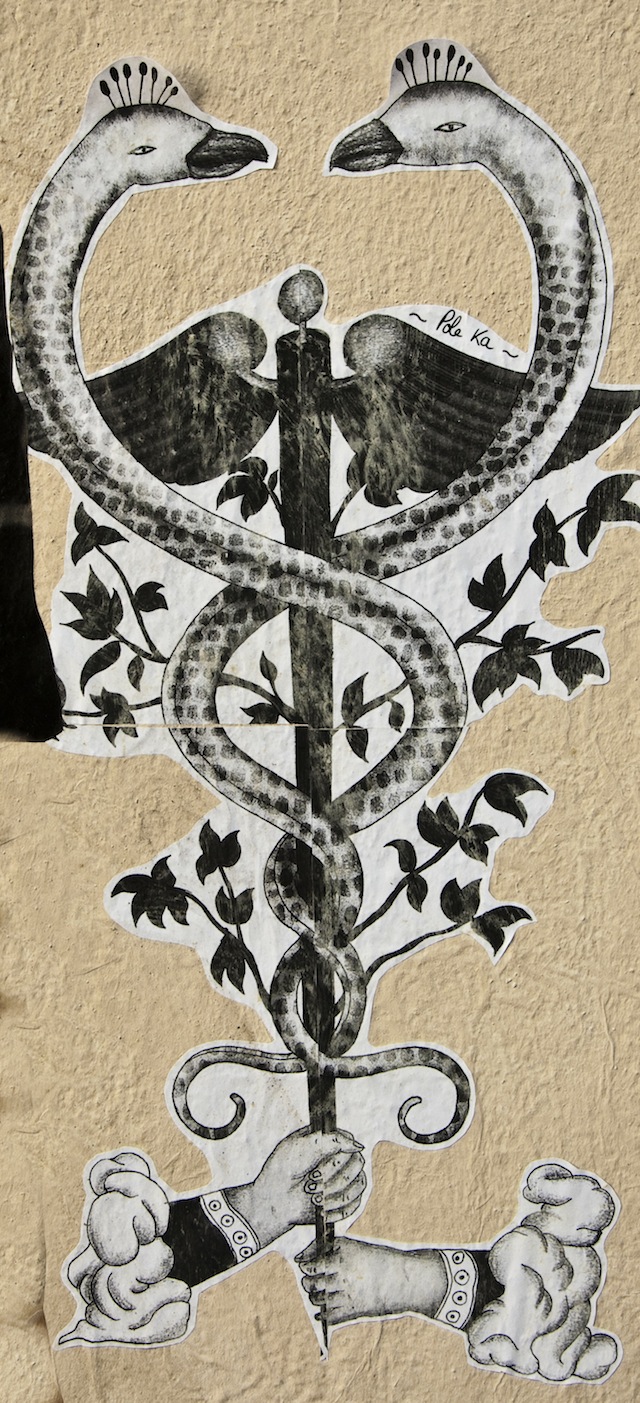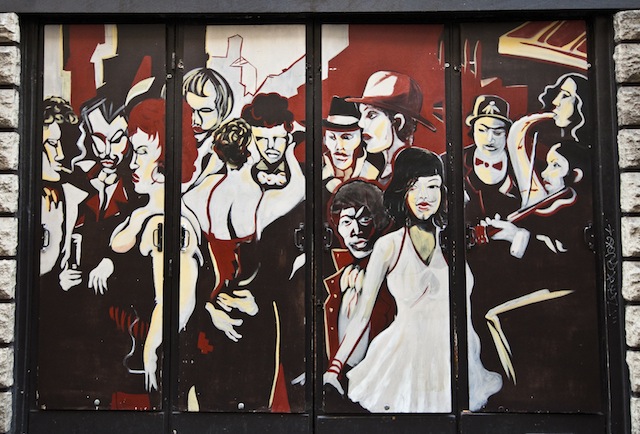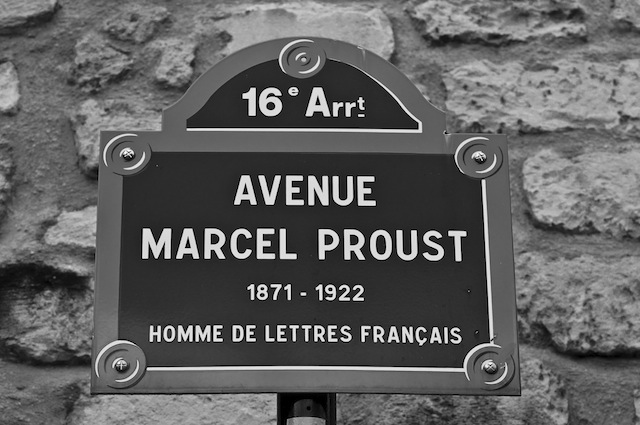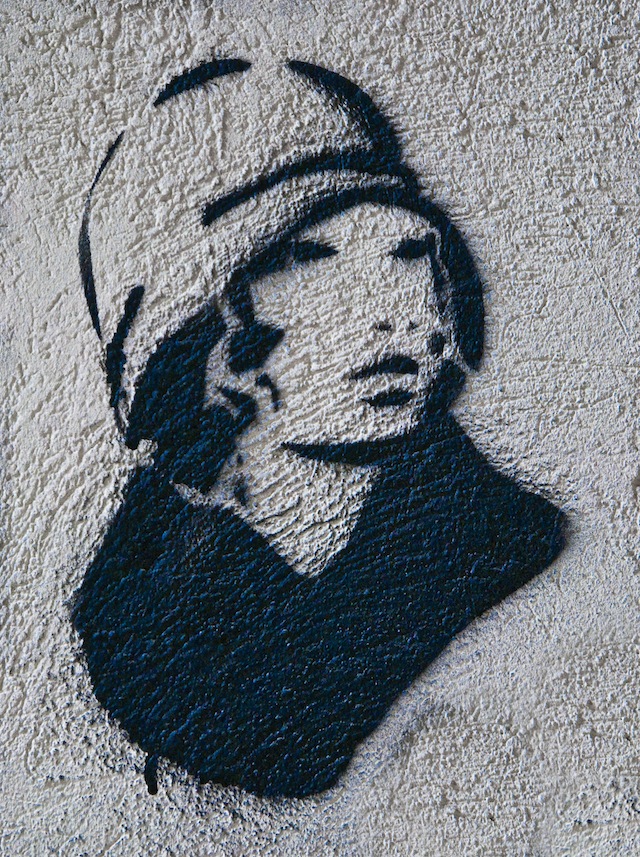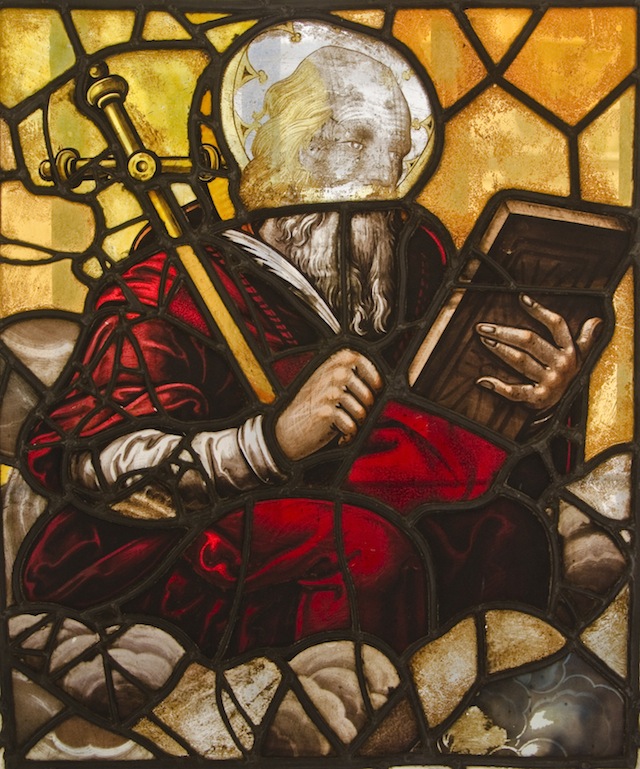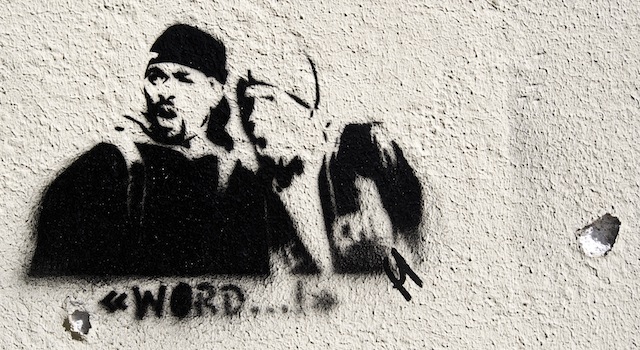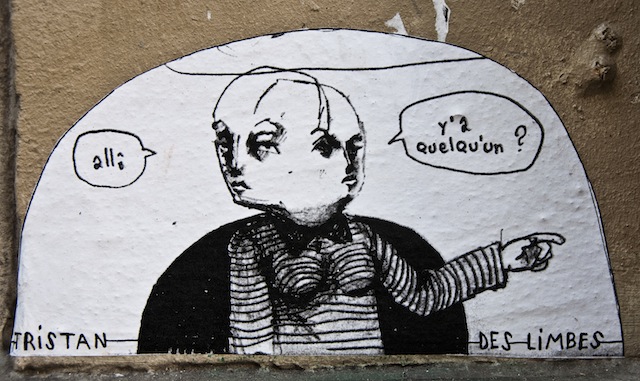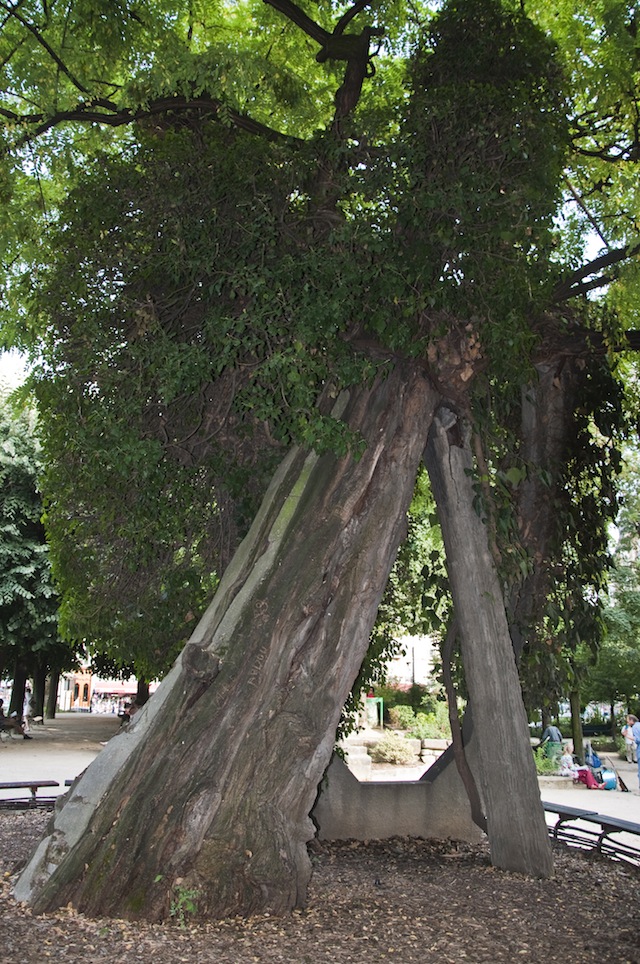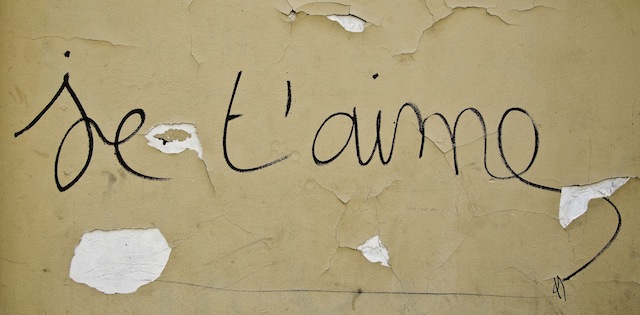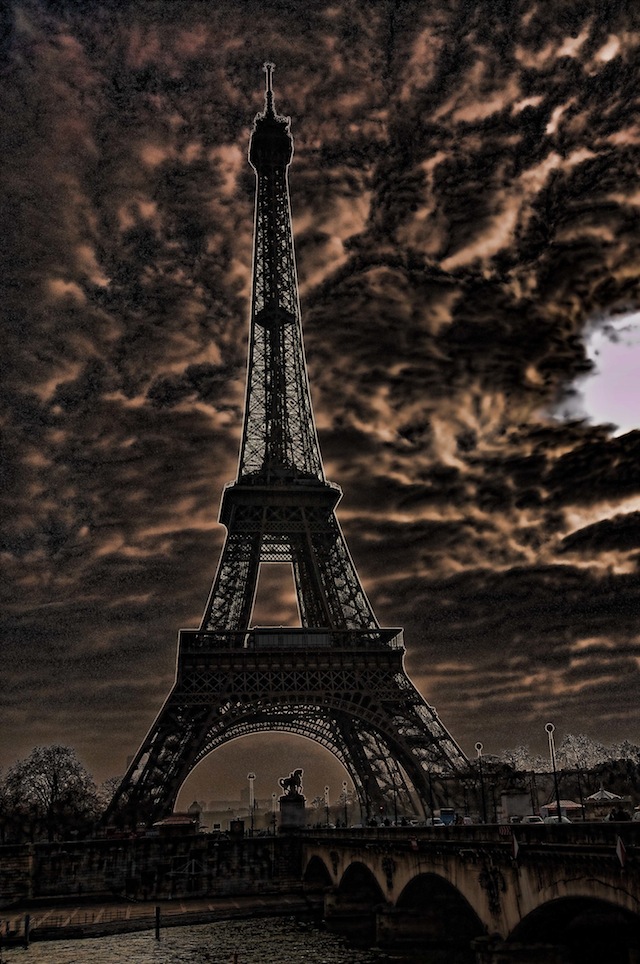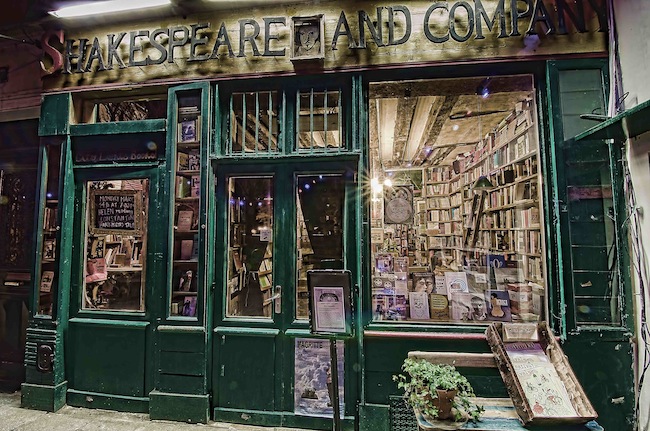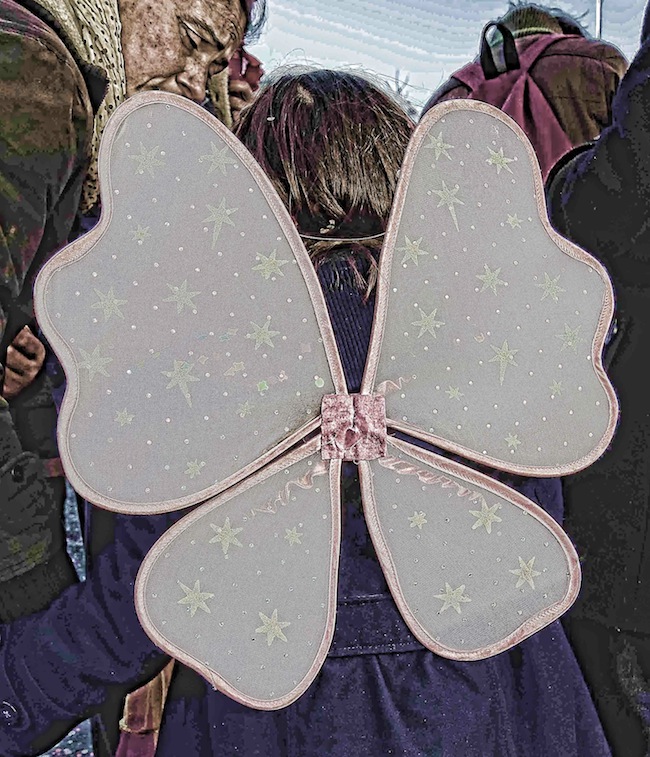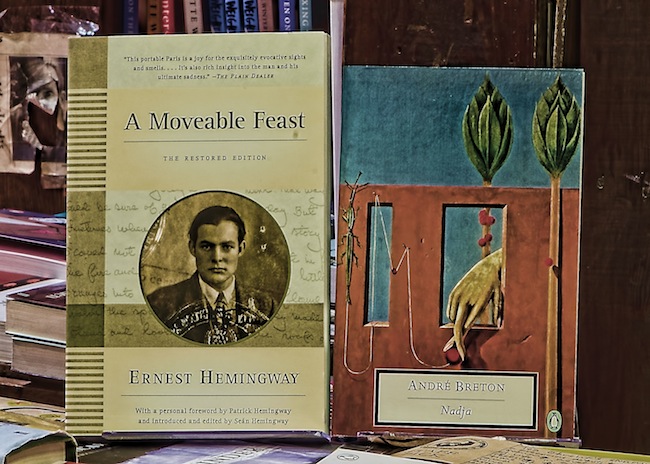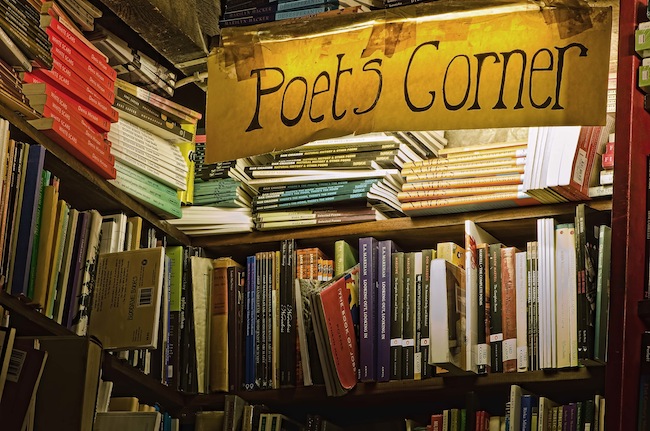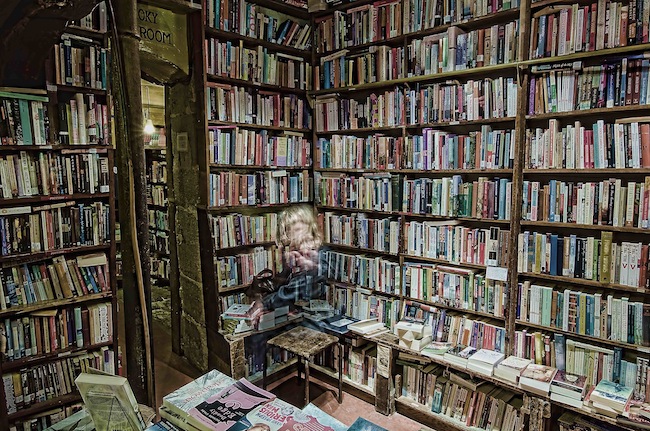Your Answers for Marcel Proust
 05.5.2012
05.5.2012  Kaaren honoring Proust with stargazers (our flower shop was out of cattleya)
Kaaren honoring Proust with stargazers (our flower shop was out of cattleya)
Last Saturday we asked you to answer a Proust questionnaire. Here are the responses from those brave enough to play. We're delighted by your eloquence. As you'll recall, the questions were:
1. The main feature of my character
2. The quality that I desire in a man
3. The quality that I desire in a woman
4. What I appreciate most about my friends
5. My main fault
6. My preferred occupation
7. My dream of happiness
8. What would be my greatest misfortune
9. What I would like to be
10. The country in which I would like to live
11. The color I prefer
12. The flower I like
13. The bird which I prefer
14. My favorite authors in prose
15. My favorite poets
16. My favorite heroes in fiction
17. My favorite composers
18. My favorite painters
19. My heroes in real life
20. My heroines in history
21. My favorite names
22. What I hate most of all
23. Characters that I most despise
24. The military act that I value most
25. The reform that I admire most
26. The gift of nature that I would like to have
27. How I would like to die
28. My present state of mind
29. Faults that inspire the most indulgence in me
30. My motto
 Street art by Tristan des Limbes
Street art by Tristan des Limbes
Walter Calahan
My answer: Proust had to answer too many questions.

Susan Griffin
1. If I knew I would tell you. (which might indicate, openness, I suppose). 2. emotional insight. 3. emotional insight. 4. Their presence in every sense of the word. 5. Being late. 6. Writing. 7. Warm weather in good company or serene solitude. 8. I’m too superstitious to say it out loud. 9. I am what I’d like to be now. In another life, perhaps an actor. 10. Either where I am now, Berkeley, California, a country in its own right, or France. 11. Deep blue in the sky, turquoise in water, green around me outdoors, ochre on the walls inside, black or shades of purple to wear, skin and eyes in every available shade. 12. Cherry blossoms. 13. Hummingbirds (and sparrows and ravens). 14. Among so many, these come to mind: Tolstoy, M. Proust, V. Woolf, Edith Wharton, James Baldwin, Toni Morrison, Grace Paley, John Berger, Michael Ondaatje, Joan Didion. 15. Again among so many, Sappho, Dickinson, Whitman, Mallarmé, HD, WC Williams, Theodore Roethke, Rilke, Nelly Sachs, Adrienne Rich, Aime Cesaire, Jacque Prévert, Paul Celan, Cavafy, Lucille Clifton, B.H. Fairchild. 16. Well, of course, Valjean in Les Miserables, and the narrator of In Search of Lost Time, Mrs. Ramsey in To the Lighthouse, Lady Dedlock in Bleak House. 17. Bach, Mozart, Phillip Glass, Steve Reich, Jelly Roll Morton, John Coltrane, Billie Holiday and Ella Fitzgerald riffing on standards, Bob Marley, Arvo Part. 18. Helen Frankenthaler, Claudia Bernardi, Basquiat, Morton Dimondstein (my adoptive father), Frida Kahlo, Rothko, Morris Graves, Lucian Freud, Eve Hesse, Alice Neel, Rembrandt, Tintoretto, Titian, Cezanne, Suzanne Valadon, Sonia Delaunay, Charlotte Salomon, unnamed Haitian”folk” painters. 19. Aung san Suu Kyi, Nelson Mandela, Helen Caldicott, Rosa Parks, Barbara Lee, my friend, Jodie Evans. 20. Ninon de Lenclos, Sojourner Truth, Ida B. Wells, Eleanor Roosevelt, MLK, Fannie Lou Hamer, Rachel Carson. 21. Pilar, Pascal, Rachel, Dante. 22. Arrogance mixed with stupidity and cruelty (the first often leading to the latter). 23. Edward Cassaubon in Middlemarch, though it’s harder to find absolute villains in good fiction than in real life; one can even sympathize with the ruthless Inspector Javert. 24. Liberating the concentration camps in WW II. 25. Universal Health Care. 26. Good health. 27. In my own bed surrounded by family and friends. 28. Anxious and happy alternating from moment to moment. 29. Being late. 30. The truth will set you free.
 John Lennon by Jef Aerosol
John Lennon by Jef Aerosol
John J. Heimark
1. The main feature of my character: My character. 2. The quality that I desire in a man: Honesty. 3. The quality that I desire in a woman: Honesty. 4. What I appreciate most about my friends: Sense of humor. 5. My main fault: I am cheap. 6. My preferred occupation: Masterbuilder. 7. My dream of happiness: World peace. 8. What would be my greatest misfortune: To lose a friend. 9. What I would like to be: Loved. 10. The country in which I would like to live: Brazil. 11. The color I prefer: Navy blue. 12. The flower I like: Bird of Paradise. 13. The bird which I prefer: Peregrine Falcon. 14. My favorite authors in prose: Prose is dull and tedious. 15. My favorite poets: Kaaren Kitchell, Carl Sandburg…. 16. My favorite heroes in fiction: T.S.Garp. 17. My favorite composers: Bach, John Lennon, Joe Ely…. 18. My favorite painters: Michaelangelo, van Gogh, Terry Allen…. 19. My heroes in real life: My father, fire fighters, police officers…. 20. My heroines in history: Betsy Ross, Sue Heimark Dufern, Sandra Day O'Connor…. 21. My favorite names: Allison, Veronica, Brice. 22. What I hate most of all: Losing family. 23. Characters that I most despise: Politicians…. 24. The military act that I value most: Desert Storm, 1991. 25. The reform that I admire most: Cigarette smoking restrictions. 26. The gift of nature that I would like to have: Public speaking, like my father has. 27. How I would like to die: In my sleep when I am over 100 years of age. 28. My present state of mind: Bliss. 29. Faults that inspire the most indulgence in me: Good food. 30. My motto "Attitude is everything."
 Dream or fortune, I will touch the moon
Dream or fortune, I will touch the moon
Daniel Moore
Dear Paris Play: I’m really sorry, I started out kind of Pataphysical, and ended up kind of metaphysical.
1. The main feature of my character: eyes that eye, nose that noses, mind that minds, heart that… harkens, and hopeful invisibility. 2. The quality that I desire in a man: If asleep, a dream bubble in 3D, if awake compassion and wisdom (or the same in both states). 3. The quality that I desire in a woman: Heartfelt enthusiasm and a laugh like falling water, light in the eyes that lights up other eyes. 4. What I appreciate most about my friends: Eyes that light up, lips that sing, limbs that generously extend & swing. 5. My main fault: Never quite there, however close, never too far, however far, AND an inability to take these exercises seriously, and yet, and yet…. 6. My preferred occupation: There’s no limit in listening, opening up and the word horde flowing. 7. My dream of happiness: Everyone on fields of light, choirs in the clouds, lively spectrums from good minds. 8. What would be my greatest misfortune: To not think and know these things or be bereft of faith. 9. What I would like to be: A saint who flies through the air and lands where needed. 10. The country in which I would like to live: A country of flying saints and soft landings. 11. The color I prefer: I admit a great fondness for turquoise, especially when matched with silver. 12. The flower I like: One in the shape of a piano played with trilling runs and deep chords. 13. The bird that I prefer: The hoopoe, leader of the birds to the Great Simurgh, and of course the Simurgh itself (see The Conference of the Birds). 14. My favorite authors in prose: Francis Ponge, but that’s poetry, or Irving Rosenthal, Sheeper… or is that also poetry? 15. My favorite poets: The ones to come… to whom, like music, we aspire. (And then there’s Mevlana Rumi, in authentic translation, Rene Char, Tomaz Salamun, etc. etc. etc.). 16. My favorite heroes in fiction: All the Kafka ones, then back to Gulliver and Robin Hood, Robinson Crusoe, and of course Hayy ibn Yaqthan by Ibn Tufayl. 17. My favorite composers: Olivier Messiaen, Terry Riley, John Adams, etc. etc. etc. (I’m getting serious now). 18. My favorite painters: Gustave Moreau, Odilon Redon, Jess, etc. etc. etc. 19. My heroes in real life: All saints, living in real life, and dead in even more real life. 20. My heroines in history: Rabia Adawiyya, and Shaykha Baji and my wife Malika, whose histories are gloriously still in progress. 21. My favorite names: Ah… Muhammad, Hafez, Gululapeg, Sandoz the Magnificent, Gerard de Nerval, Otto. 22. What I hate most of all: Hatred. 23. Characters that I most despise: Despisers. 24. The military act that I value most: The Laying down of arms. 25. The reform that I admire most: That once all striving is made to change and better things, we know somehow that everything by Divine Decree is, oddly, perfect just as it is (illuminatingly). 26. The gift of nature that I would like to have: Ever cool most inward aplomb on an epic scale. 27. How I would like to die: Reciting Qur’an, sitting up or laying back, no problem, remembering God in all gracefulness and sweet relief, with a farewell poem snatched from the angels. 28. My present state of mind: Less easy than it should be, sharper than it has been, as circular as ever, with a few sparklers. 29. Faults that inspire the most indulgence in me: Sadly, my own. 30. My motto: La ilaha il Allah Muhammad rasulullah (and may it be the last on my lips and in my heart.

Anna Waterhouse
1. Faithfulness. 2. Faithfulness. 3. A nurturing instinct. 4. Faithfulness…and a nurturing instinct. 5. I’m too generous. (Kidding.) I’m too sensitive. (Also kidding.) I’m sarcastic. 6. I’d love to be Bonnie Raitt. To have spent my life playing the guitar like that, and singing with those people....wow. 7. Writing. Singing. Without worrying about money. 8. The death of my child. 9. Four inches taller. 10. Italy. 11. I have no favorite colors, though there are a few I dislike. Puce comes to mind, if only for the name. 12. It’s a tie. Roses for their scent and beauty, and the fact that they protect themselves and need a ridiculous amount of care; and orchids because they have no odor, are ridiculously fragile, and vant to be left alone. 13. Easy. A hawk. Our neighborhood hawk can come scoop up our adorable wild bunny, if he wants, though I hope he doesn’t. In other words, if it’s almost anything versus a hawk, I’m rooting for the hawk. 14. Oooh, way too big a question. All the famous ones, at some time or the other, or in some mood or another. And I also dislike them all at some time or the other, or in some mood or another. 15. See #14. (Though Neruda often rises to the top.) 16. Not sure what “heroes in fiction” means. Fictitious characters I like or admire or want to emulate? See #14. 17. Composers? Really? I mean, everyone from Verdi to Philip Glass to Kurt Cobain. Or maybe I don’t understand the question. 18. Lucien Freud. My uncle Romano. Miro’. See #14. 19. Jesus. 20. None come to mind, though I’ll surely kick myself when they do. 21. Carbon de Castille Jaloux, or just about any French name except Gabi. 22. A sense of entitlement. 23. Child molesters. Predators in general. (Unless you're a hawk, I guess.) 24. The salute. 25. The repeal of slavery. 26. I don’t understand the question. Unless you mean that I’d like to be able to take root and live several hundred years, and when someone cuts off my limbs they grow back… 27. A long, long, long time from now. And I'd kind of like to be translated. Sucked up into the sky. A chariot of fire could be good. 28. Calm. 29. My yelling at bad drivers. (Meaning “other” drivers.) I just think I’m so cute when I do it.

Patricia Duthion
As I don't know how to answer the questionnaire, I asked my dog. She had no spiritual
ideas, but Raga said:
Le principal trait de mon caractère? La volonté, la désobéissance, l'entêtement. Mais aussi,
je suis très pacifique, je déteste l'agressivité.
La qualité que je préfère chez un homme? Qu'il soit joueur, et bon joueur si possible.
Et chez une femme? La douceur et la patience, ça me rassure.
Le bonheur parfait? Faire quelques longueurs dans la piscine, m'ébrouer dans l'herbe,
manger, manger, encore manger, puis m'allonger contre ma maîtresse pour un bon somme.
Mes films cultes? Les 101 dalmatiens, Belle et le clochard, Rintintin? Il y a longtemps que
je ne suis pas allée au cinéma, il y a sûrement mieux.
Les fautes pour lesquelles j'ai le plus d'indulgence? La gourmandise, le cabotinage.
Qu'ai-je réussi de mieux dans ma vie ? Ma maîtresse.

 Marcel Proust,
Marcel Proust,  reading in
reading in  Paris Life
Paris Life 

